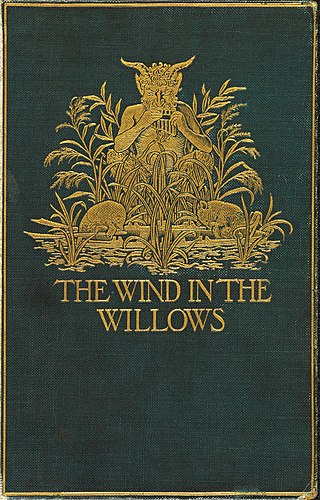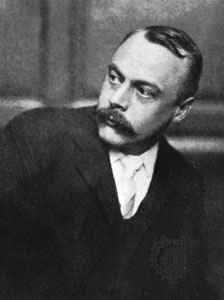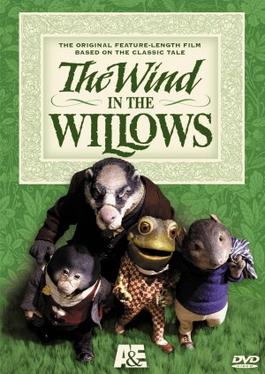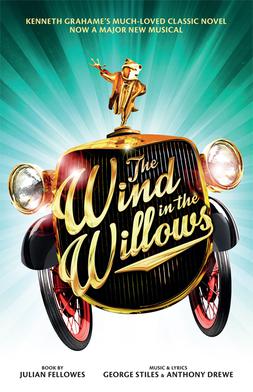
Omnipotence is the quality of having unlimited power. Monotheistic religions generally attribute omnipotence only to the deity of their faith. In the monotheistic religious philosophy of Abrahamic religions, omnipotence is often listed as one of God's characteristics, along with omniscience, omnipresence, and omnibenevolence. The presence of all these properties in a single entity has given rise to considerable theological debate, prominently including the problem of evil, the question of why such a deity would permit the existence of evil. It is accepted in philosophy and science that omnipotence can never be effectively understood.

The Wind in the Willows is a classic children's novel by the British novelist Kenneth Grahame, first published in 1908. It details the story of Mole, Ratty, and Badger as they try to help Mr. Toad, after he becomes obsessed with motorcars and gets into trouble. It also details short stories about them that are disconnected from the main narrative. The novel was based on bedtime stories Grahame told his son Alastair. It has been adapted numerous times for both stage and screen.

Derek Antony Parfit was a British philosopher who specialised in personal identity, rationality, and ethics. He is widely considered one of the most important and influential moral philosophers of the late 20th and early 21st centuries.

The ship of fools, is an allegory, first appearing in Book VI of Plato's Republic, about a ship with a dysfunctional crew. The allegory is intended to represent the problems of governance prevailing in a political system not based on expert knowledge.

Kenneth Grahame was a British writer born in Edinburgh, Scotland. He is most famous for The Wind in the Willows (1908), a classic of children's literature, as well as The Reluctant Dragon. Both books were later adapted for stage and film, of which A. A. Milne's Toad of Toad Hall, based on part of The Wind in the Willows, was the first. Other adaptations include Cosgrove Hall Films' The Wind in the Willows, and the Walt Disney films.

Tara Maclay is a fictional character created for the action-horror/fantasy television series Buffy the Vampire Slayer (1997–2003). She was developed by Joss Whedon and portrayed by Amber Benson. Tara is a shy young woman with magical talents who falls in love with Willow Rosenberg, one of the core characters. Together, they help Buffy Summers, who has been given superhuman powers to defeat evil forces in the fictional town of Sunnydale.

Three Men in a Boat (To Say Nothing of the Dog), published in 1889, is a humorous account by English writer Jerome K. Jerome of a two-week boating holiday on the Thames from Kingston upon Thames to Oxford and back to Kingston. The book was initially intended to be a serious travel guide, with accounts of local history along the route, but the humorous elements took over to the point where the serious and somewhat sentimental passages seem a distraction to the comic novel. One of the most praised things about Three Men in a Boat is how undated it appears to modern readers – the jokes have been praised as fresh and witty.

The Scout Motto of the Scout movement is, in English, "Be Prepared", with most international branches of the group using a close translation of that phrase. These mottoes have been used by millions of Scouts around the world since 1907. Most of the member organizations of the World Association of Girl Guides and Girl Scouts (WAGGGS) share the same mottoes.
Gorgias is a Socratic dialogue written by Plato around 380 BC. The dialogue depicts a conversation between Socrates and a small group of sophists at a dinner gathering. Socrates debates with the sophist seeking the true definition of rhetoric, attempting to pinpoint the essence of rhetoric and unveil the flaws of the sophistic oratory popular in Athens at the time. The art of persuasion was widely considered necessary for political and legal advantage in classical Athens, and rhetoricians promoted themselves as teachers of this fundamental skill. Some, like Gorgias, were foreigners attracted to Athens because of its reputation for intellectual and cultural sophistication. Socrates suggests that he (Socrates) is one of the few Athenians to practice true politics (521d).
Potatoes and Dragons is an animated series created by Jan Van Rijsselberge for Canal J, France 3 and Teletoon and produced by DQ Entertainment, LuxAnimation, Europool, CINAR Corporation and Alphanim. The series follows the efforts of a kingdom of potatoes led by King Hugo III to fend off the Dragon with usually unsuccessful results. It was formerly broadcast in the United States as a comedic cartoon until late September 2010 on This TV.
Lysis, is a dialogue of Plato which discusses the nature of philia, often translated as friendship, while the word's original content was of a much larger and more intimate bond. It is generally classified as an early dialogue.
In competitive rowing, the following specialized terms are important in the corresponding aspects of the sport:

The Wind in the Willows is a 1996 British adventure comedy film based on Kenneth Grahame's 1908 novel The Wind in the Willows, adapted and directed by Terry Jones, and produced by Jake Eberts and John Goldstone. The film stars Terry Jones, Steve Coogan, Eric Idle and Nicol Williamson. While positively regarded, it was a box office bomb and had distribution problems in the United States.

The Wind in the Willows is a 1983 British stop motion animated film produced by Cosgrove Hall Films for Thames Television and aired on the ITV network. The film is based on Kenneth Grahame's classic 1908 novel The Wind in the Willows. It won a BAFTA award and an international Emmy award.
Dragon is a stop-motion-animated children's television series which is based on the books by best-selling children's author Dav Pilkey. 78 episodes were produced and broadcast on Treehouse TV.
Hairy Scary is an animated television series created by Jan Van Rijsselberge and produced by Alphanim for France 3 and Super RTL. The series is centered on two kids – a “Hairy” boy, Willow, and a “Scary” girl, Constance – and their adventures in a fantastical and sometimes confusing world of misconceptions and misunderstandings. Along with a bunch of pretty assertive schoolmates, they figure out all sorts of important things such as friendship stronger than prejudice and acceptance of difference.
"Always Wanting You" is a song written and recorded by American country music artist Merle Haggard and The Strangers. It was released in February 1975 as the second single from the album Keep Movin' On. The song was Haggard and The Strangers twentieth number-one single on the U.S. country chart. It stayed at number one for two weeks and spent a total of ten weeks on the chart.

There are many varieties of positive and negative effects of criticism. This article describes common types that occur regularly in everyday life. For other criteria that classify criticisms, see Criticism § Classifications. For more subject-specific information, see the pages on topics such as art, film, literature, theatre, or architecture.

The Wind in the Willows is a musical written by Julian Fellowes, with music and lyrics by George Stiles and Anthony Drewe, based on the 1908 novel of the same name, written by Kenneth Grahame. The musical received its world premiere at the Theatre Royal in Plymouth in October 2016, before transferring to The Lowry in Salford and the Mayflower Theatre in Southampton. The following year the production transferred to the West End's London Palladium, where it was filmed for cinema broadcast.

The Obstacle Is the Way: The Timeless Art of Turning Trials into Triumph is the third book by author Ryan Holiday. It was published in 2014. It is a book which offers individuals a framework to flip obstacles into opportunities, an approach crafted by Holiday. It was inspired by the philosophy of stoicism.













